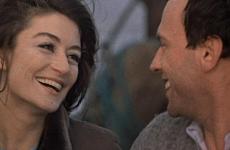| Academy Award Nominations and Winners: |
| Best Director: Claude Lelouch |
| Best Actress: Anouk Aimée |
| ★ | Best Original Screenplay: Claude Lelouch & Pierre Uytterhoeven |
| ★ | Best Foreign-Language Film |
|
| Golden Globe Nominations and Winners: |
| Best Director: Claude Lelouch |
| ★ | Best Actress (Drama): Anouk Aimée |
| ★ | Best Foreign-Language Film |
| Best Original Score: Francis Lai |
| Best Original Song: "A Man and a Woman" |
|
| Other Awards: |
| Cannes Film Festival: Palme d'Or (Best Picture; tie); OCIC Award |
| British Academy Awards (BAFTAs): Best Foreign Actress (Aimée) |

